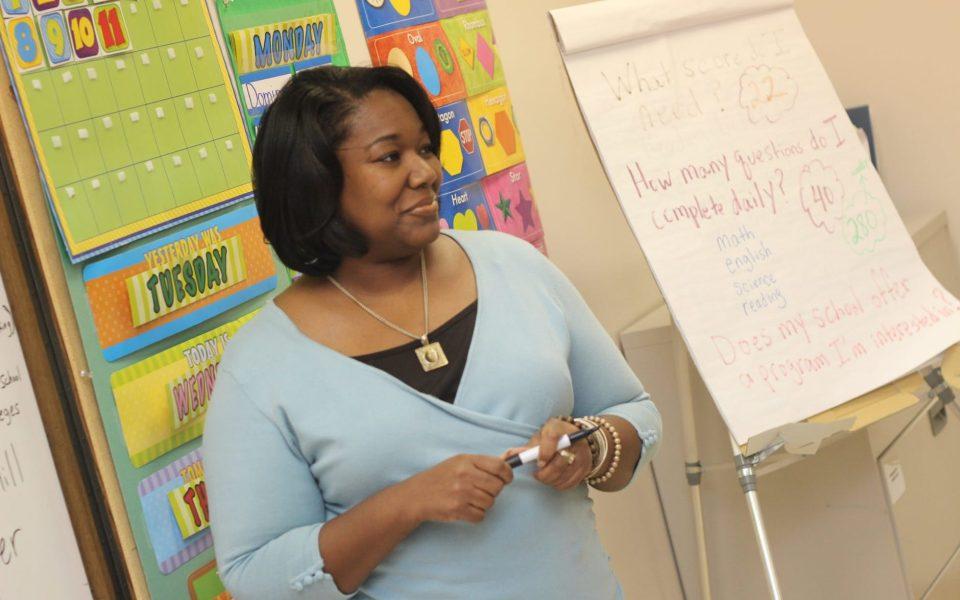This story was originally published by NC Policy Watch. Story by Greg Childress.
A controversial pilot program to evaluate a plan to reform teacher licensure and pay was approved by the State Board of Education (SBE) this week. It will be sent to the General Assembly for its approval.
The six-year pilot would begin with the 2023-24 school year if approved by lawmakers. Districts of “varying size and geographic diversity” chosen to participate would use next year as a planning year.
Supporters of the proposed “North Carolina Pathways to Excellence for Teaching Professionals” say it will help to attract more candidates to the teaching profession, increase teacher pay, and retain veteran teachers with the promise of advancement and higher pay.
North Carolina’s teachers are currently paid based on their years of experience.
“Part of the problem with teacher pay is that we are paying teachers according to two metrics that don’t correlate to student outcomes,” State Superintendent Catherine Truitt said on Wednesday. “One of those is years of experience and the other is degrees held.”

Truitt said that across-the-board teacher pay increases are needed so that districts can compete with neighboring states that awarded teachers hefty pay raises during the pandemic. Teachers also need “pathways” to advancement so that they can be paid for those responsibilities that many of them already take on without additional pay, the superintendent said.
The state board also agreed to ask lawmakers for a 10 percent pay raise for all teachers next year and “investments in beginning teacher pay to make North Carolina the leader in the Southeastern United States.”
As Policy Watch reported previously, the proposed licensure and pay model under consideration would create a system of entry-level certifications to bring more people into the profession. One certification would serve essentially as a learner’s permit. It would allow aspiring educators with associate’s degrees to teach for two years while they earn a bachelor’s degree. Teachers working under that license would receive a base salary of $30,000.
Veteran teachers in leadership roles could earn an advanced teacher license. A National Board Certified Teacher working under that license with a master’s degree and more than 25 years of experience could earn more than $80,000 a year.
Opponents of the model contend that it’s an unwanted move to a system of “merit pay” that places too much emphasis on student scores on standardized tests. They argue that a better strategy to recruit and retain teachers — a stated goal of the new proposal — is to pay them a fair wage.
At least one district superintendent, Andrew Houlihan, who leads Union County Public Schools, has said his district will not participate in the pilot program.
Houlihan believes that tying base pay to student growth, subjective principal and assistant principal evaluations and student growth could change teacher salaries from year-to-year.
He tweeted this message in February:
For the record: @UCPSNC will not be a participant in this “pilot”. When districts across our state are striving to recruit/retain Ts, this plan is going to help? I don’t think so!—NC commission adopts report for teacher performance pay pilot.
SBE Chairman Eric Davis said he receives lots of email about the proposed pay and licensure model. One third grade teacher, Davis said, listed 10 recommendations for the board to consider as it completes its work around pay and licensure.
Six of the teacher’s recommendations are in the proposal, Davis said, and a couple are outside of the scope of the board’s authority.
“We’ve got a lot of work to do in terms of our last conversation about how we communicate this proposal and ensure an accurate understanding about what’s before us and the potential this has for the support of our teachers and students,” Davis said.
Join the First Amendment Society, a membership that goes directly to funding TCB‘s newsroom.
We believe that reporting can save the world.
The TCB First Amendment Society recognizes the vital role of a free, unfettered press with a bundling of local experiences designed to build community, and unique engagements with our newsroom that will help you understand, and shape, local journalism’s critical role in uplifting the people in our cities.
All revenue goes directly into the newsroom as reporters’ salaries and freelance commissions.


Leave a Reply